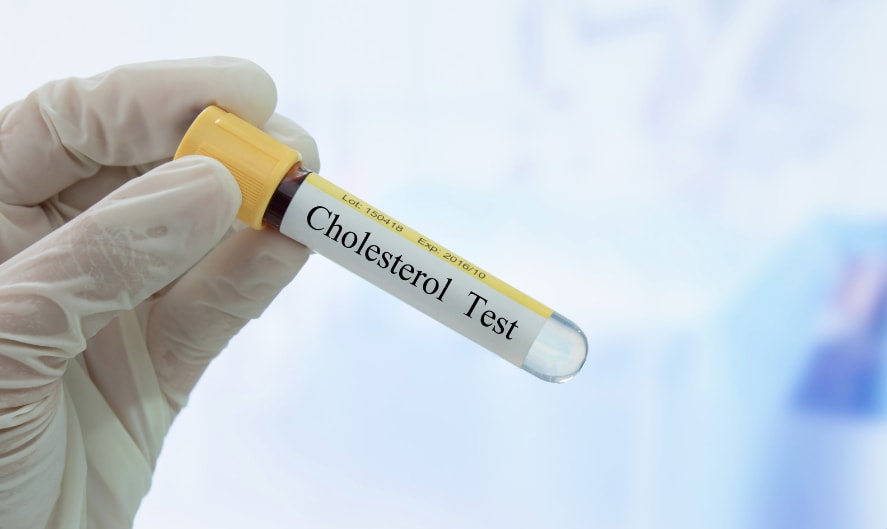Checking your cholesterol levels is an essential part of staying healthy. High cholesterol puts you at risk for heart disease and stroke, leading causes of death in the United States. Knowing your cholesterol level can help you maintain control of your health. Learn about the importance of cholesterol screening.

Cholesterol is a waxy substance that your body requires to produce hormones and digest fat. Your body produces all the cholesterol required, but you can also get it from certain foods, such as egg yolks and fatty meats. High blood cholesterol levels can cause plaque buildup in the arteries, increasing your risk of heart disease and stroke. Since high blood cholesterol has no symptoms, it is important to check your cholesterol levels.
Continue reading to learn more about cholesterol screenings.
When should I be screened for high cholesterol?
Between 2009 and 2016, approximately one in five adolescents had an unhealthy cholesterol reading. From 2015 to 2018, nearly 93 million U.S. adults aged 20 and up had high or borderline high cholesterol (total cholesterol greater than or equal to 200 mg/dL). However, because high cholesterol has no symptoms, many people are unaware that their levels are elevated.
Cholesterol should be checked at a young age—even children and adolescents should have their cholesterol checked.
Cholesterol testing should be done
- Every five years for people aged 20 and older who are at low risk for cardiovascular disease.
- People with cardiovascular disease risk factors should be tested more frequently than every five years.
According to the 2018 ACC/AHA Guidelines, cholesterol management should be based on a person’s lifetime cardiovascular risk.
If your family has a history of early heart disease or heart attacks, or if your child has obesity or diabetes, doctors may advise more frequent cholesterol screening.
What factors contribute to high blood cholesterol?
High cholesterol risk can be increased by your lifestyle, medical conditions, and family history. If you have risk factors such as the following, your doctor may advise you to have your cholesterol checked more frequently.
- A history of heart disease or high cholesterol levels in the family
If other family members have high cholesterol, you are more likely to have it. This could be due to genetics, but it could also be due to families adopting the same unhealthy lifestyle habits. Some people also have familial hypercholesterolemia, a genetic condition that causes high levels of low-density lipoprotein or “bad” cholesterol from a young age.
- Diabetes
Type 2 diabetes raises “bad” cholesterol while lowering HDL, or “good” cholesterol, increasing the risk of heart disease and stroke.
- Older age
As you get older, your body’s ability to clear cholesterol diminishes.
- Being a male
Men have higher LDL cholesterol levels and lower HDL cholesterol levels than women. Women’s LDL cholesterol levels rise after menopause (around the age of 55).
- Being overweight or obese
Excess weight, poor eating habits, and a lack of physical activity contribute to high cholesterol.
- Having had high cholesterol in the past
If you had high cholesterol in the past, your physician might advise you to monitor it more closely.
What should I know before getting screened?
A cholesterol test is simple. Your doctor may advise you to avoid eating or drinking anything other than water for 9 to 12 hours before the test. The results provide four measurements:
- Total cholesterol
The ideal concentration is around 150 mg/dL.
- LDL cholesterol
The ideal concentration is around 100 mg/dL. LDL cholesterol is sometimes called “bad” cholesterol because it can accumulate and clog arteries, resulting in heart disease or stroke.
- High-density lipoprotein cholesterol
Men should have greater than or equal to 40 mg/dL, and women should have greater than or equal to 50 mg/dL. HDL is sometimes referred to as “good” cholesterol because it can help clear arteries of cholesterol buildup.
- Triglycerides
The blood contains this type of fat. Typically, optimal levels are 150 mg/dL.
Cholesterol Lab Services in Kearney, NE
We recommend that you discuss your medical history with your doctor and how frequently you should have your cholesterol checked. Elite Health and Wellness in Kearney, NE, provides a wide range of lab services at our clinic, including Cholesterol Lab Services. For more information, please contact us at (308) 455 1500.

